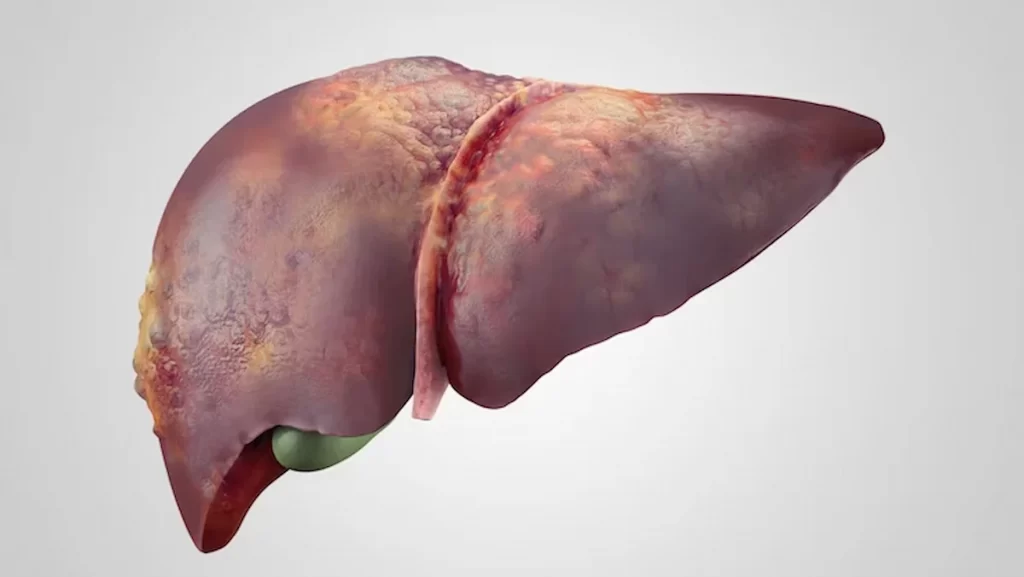
Cirrhosis is a chronic and progressive liver disease characterized by the replacement of healthy liver tissue with scar tissue, resulting in impaired liver function. It is a significant global health concern and a leading cause of liver-related morbidity and mortality. This article provides comprehensive insights into liver cirrhosis treatment in Chennai, including its causes, risk factors, symptoms, and diagnosis.
By understanding cirrhosis, individuals can take proactive measures to prevent its development, seek timely medical care from the top liver specialist in Chennai, and make informed decisions about their liver health.
This section explores the causes and risk factors associated with cirrhosis. It explains that cirrhosis can develop as a result of various liver diseases, including chronic viral hepatitis (such as hepatitis B or C), alcoholic liver disease, non-alcoholic fatty liver disease (NAFLD), autoimmune hepatitis, and genetic disorders.
The liver specialist in Chennai also addresses other factors that can contribute to cirrhosis, such as prolonged alcohol abuse, obesity, metabolic syndrome, and certain medications. The section emphasizes the importance of understanding the risks and adopting preventive measures to reduce the risk of developing cirrhosis.
Here, the focus is on the symptoms and potential complications of cirrhosis. It explains that in the early stages, cirrhosis may be asymptomatic, but as the disease progresses, symptoms such as fatigue, jaundice, abdominal pain, swelling of the legs, weight loss, and easy bruising may manifest.
The liver cirrhosis treatment in Chennai also addresses potential complications of cirrhosis, including portal hypertension, ascites (fluid accumulation in the abdomen), hepatic encephalopathy (brain dysfunction), variceal bleeding, and an increased risk of liver cancer. Early recognition, timely medical intervention, and appropriate management are crucial in managing symptoms of liver damage and preventing complications.
Diagnosis of liver cirrhosis involves several steps to assess liver function, identify the underlying cause, and determine the appropriate treatment plan:
Once diagnosed, treatment aims to manage symptoms, slow disease progression, and address underlying causes such as alcohol abuse or viral hepatitis. Treatment plans may include lifestyle changes, medications, and in severe cases, liver transplant evaluation. Regular monitoring is essential to assess treatment effectiveness and liver function over time.
The liver cirrhosis treatment in Chennai requires a comprehensive approach. This section explores the strategies used to address cirrhosis, including lifestyle modifications, medication, and interventions to manage complications. It discusses the importance of alcohol cessation for individuals with alcohol-related cirrhosis, weight loss and dietary changes for those with fatty liver-related cirrhosis, and medications to manage specific symptoms and complications.
Also, the liver specialist in Chennai addresses interventions such as paracentesis or trans jugular intrahepatic portosystemic shunt (TIPS) for managing complications like ascites and variceal bleeding. Regular medical follow-up, vaccination for hepatitis A and B, and monitoring for liver cancer are also crucial components of managing cirrhosis.
Liver transplantation may be considered for individuals with advanced cirrhosis and liver failure. This section discusses the process of liver cirrhosis treatment in Chennai, including the evaluation and selection of suitable candidates, the organ allocation process, and the surgery itself.
It emphasizes the importance of a multidisciplinary approach involving top liver specialist in Chennai, transplant surgeons, and other healthcare professionals. Post-transplant care, including immunosuppressive medications and lifelong monitoring, is also highlighted.
Liver transplantation is a viable treatment option for end-stage liver cirrhosis when other treatments fail. However, advanced cirrhosis can be managed through lifestyle changes, medication, and close medical supervision. Early detection and timely interventions by consulting with the liver specialist in Chennai can improve liver function, reduce complications, and extend life expectancy without requiring transplantation.
While some alternative therapies claim to cure liver cirrhosis, there is limited scientific evidence to support their effectiveness. Relying solely on unproven remedies may delay proper medical treatment and worsen the condition. It is crucial to consult a qualified liver specialist in Chennai who can recommend evidence-based treatments and therapies to complement conventional medicine.
A balanced diet can help minimize stress on the liver, control complications, and improve overall health. Patients are often advised by the liver specialist in Chennai to reduce salt, limit alcohol consumption, and avoid fatty and processed foods. A well-planned diet can enhance the effectiveness of medical interventions, promoting better outcomes for individuals with liver cirrhosis.
CTS Specialty Hospital in Chennai is renowned for its excellence in liver disease treatment. Specializing in liver cirrhosis treatment, the hospital offers advanced medical care with a team of experienced hepatologists and state-of-the-art facilities. Trust CTS Specialty Hospital for comprehensive and effective solutions, providing hope and healing for individuals facing liver-related challenges in Chennai.
The best treatment for liver cirrhosis involves managing underlying causes, addressing complications, and promoting liver health. In Chennai, medical interventions may include medications, lifestyle changes, and, in severe cases, liver transplantation. Consulting with a hepatologist or gastroenterologist is crucial for personalized treatment plans tailored to the individual’s specific condition and needs. Early detection and comprehensive care enhance the chances of effective management in Chennai.
The cost of a liver transplant in Chennai can vary depending on the hospital, surgeon’s fees, and medical complexities. On average, it may range from INR 20 lakhs to INR 35 lakhs or more. For liver cirrhosis treatment in Chennai, costs can include medications, procedures, and consultations, with expenses varying based on the severity of the condition and the chosen healthcare facility. It’s advisable to consult with healthcare providers for precise cost estimates.